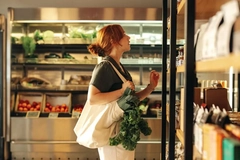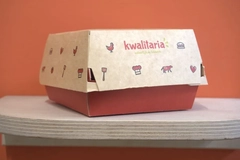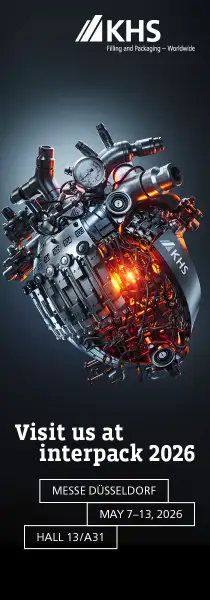UK regulatory agency bans coffee packaging ads over “misleading” compostability claims

The Advertising Standards Authority (ASA) has banned online adverts by Lavazza UK and Dualit that describe their coffee packaging as “compostable,” citing that the ads imply home compostability when they can only be composted through an industrial process.
The ASA is the UK’s independent regulator of advertising across all media. It offers advice and guidance to help advertisers understand marketing rules.
In June 2024, a paid-for search ad for Lavazza’s new line of “Eco Caps” featured the text “the coffee shop taste in compostable capsules for your home.” The ASA challenged the claim “compostable capsules” as misleading, finding that the caps can only be adequately composted during an industrial process.
Similarly, in August 2024, a paid-for search ad for Dualit’s coffee bags described them as “compostable,” with further text stating: “Discover Dualit’s compostable coffee bags — cafe-quality ground coffee in a bag.”
“Our rulings against Lavazza and Dualit are important because they serve as a strong reminder to advertisers that green claims need to be clear, honest, and backed by evidence,” Miles Lockwood, director of complaints and investigations at the ASA, tells Packaging Insights.
“In both cases, the term ‘compostable’ was used without explaining that products could only be composted in industrial facilities — not at home. That kind of detail matters. The public needs to be presented with accurate and complete information to make informed purchasing decisions.”
 The ASA has banned Lavazza’s online ad, stating it implies the coffee pods are home compostable.Lavazza responds
The ASA has banned Lavazza’s online ad, stating it implies the coffee pods are home compostable.Lavazza responds
In defense of its ad, Lavazza indicated that “compostable” means a product is made of compostable material, not that it is compostable within domestic compost.
“We disagreed with the ASA that ‘compostable’ would be interpreted as ‘home compostable’ as home composting systems are not common in the UK,” a Lavazza spokesperson tells Packaging Insights.
“Nevertheless, transparency and building a trustworthy relationship with consumers are fundamental principles for Lavazza, so we immediately amended the advertisement in good faith. We don’t expect this ruling to have any additional implications.”
The ASA published the ruling in April this year but notified Lavazza about the challenge in June 2024, after which Lavazza removed the ad.
Packaging Insights also reached out to Dualit for a response.
Compostable confusion
In the ruling, the ASA recognizes that Lavazza and Dualit’s coffee product packaging is certified to the European Standard EN13432. Packaging products under this standard are designed to break down in industrial composting processes, not necessarily in domestic composts.
Lockwood says: “Advertisers are welcome to make claims that their products are biodegradable or compostable, but these claims must be genuine, and advertisers must have the evidence to substantiate them.”
“Ads shouldn’t exaggerate just how much of a product or its packaging is biodegradable or compostable, the speed at which they’ll break down, or, particularly for products likely to be used within the home, omit material information about where a product advertised as biodegradable or compostable should be placed for it to break down properly.”
Dualit’s coffee bags and Lavazza’s coffee pods are suitable for industrial composting.The Lavazza website states that the capsules are certified for industrial composting, but the ASA indicates that the online ad provides no further information, nor does a link in the ad that directs consumers to a list of coffee capsules sold by Lavazza indicate capsule disposal information.
However, the Lavazza spokesperson tells us: “As the ASA acknowledges, these capsules are industrially compostable, and various materials relating to them, including the website and packaging, make this clear. Consumers can find out how to recycle our capsules by checking with their local authority.”
Correct and clear insights
In response to the ASA investigation, Dualit indicated that their coffee bags are made from polylactic acid, a material derived from sugars extracted from plants and ground coffee.
The company argued that “consumers would interpret the claim ‘Compostable Coffee Bags’ to mean the bags were made from a compostable material and would not assume they were home compostable.”
“The ASA assesses environmental claims against the UK Advertising Codes. Key criteria include whether the claim is supported by robust evidence, whether it gives a misleading impression about a product’s total environmental impact, and whether any important limitations or conditions are clearly explained,” says Lockwood.
“For example, a ‘compostable’ claim applied to a product which is only suitable for industrial composting should be properly qualified.”
The ASA deemed the use of the term “compostable” misleading for consumers and banned both online ads. Specifically, the companies were told to ensure their search ads did not mislead consumers about the “correct route for disposal” and “omit material information about the disposal of compostable products.”
“In our 2024 Annual Report, we saw evidence that businesses are adapting and evolving to make better, evidence-based, more precise green claims,” says Lockwood.
“We carried out proactive monitoring of claims following publication of research into green waste disposal, and we’ve been encouraged to find generally high levels of compliant claims being made, particularly by big brands.”












